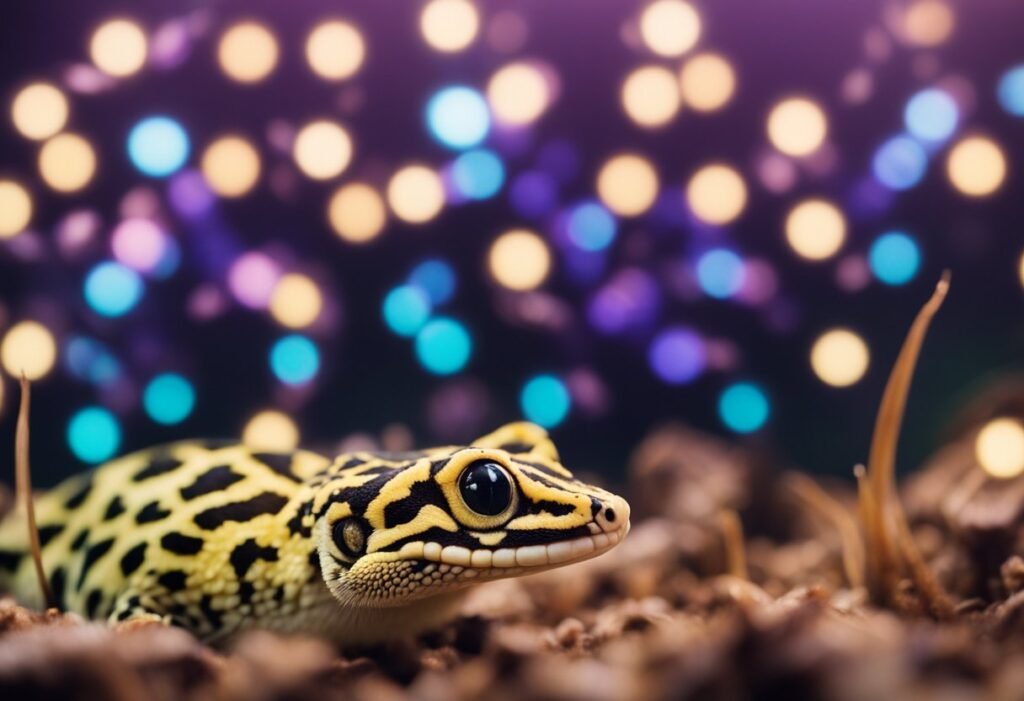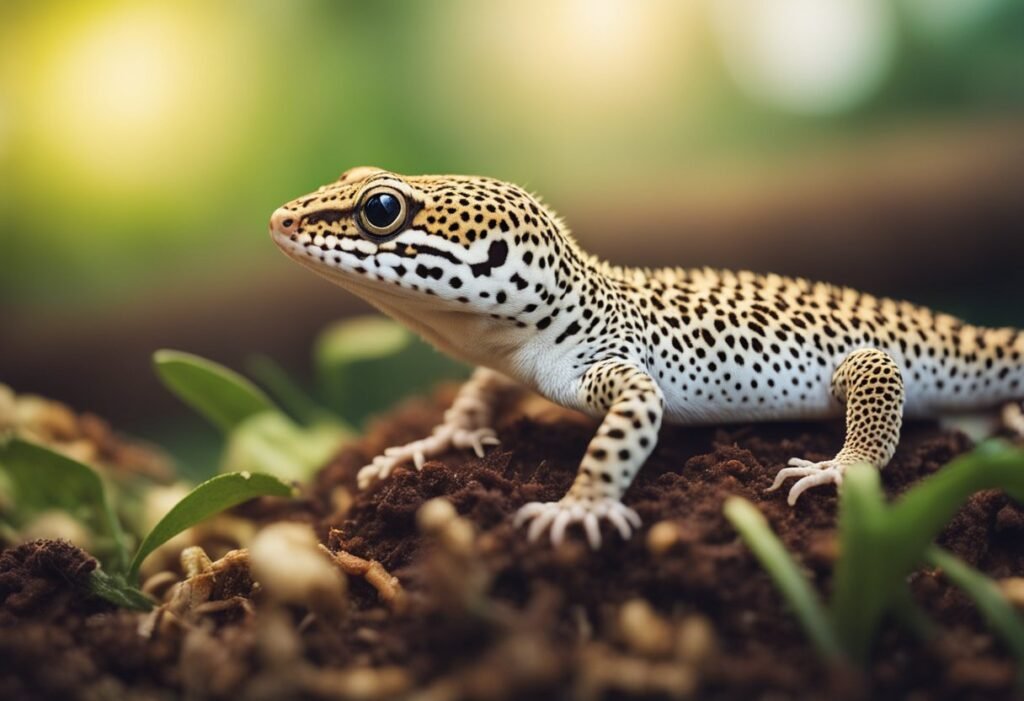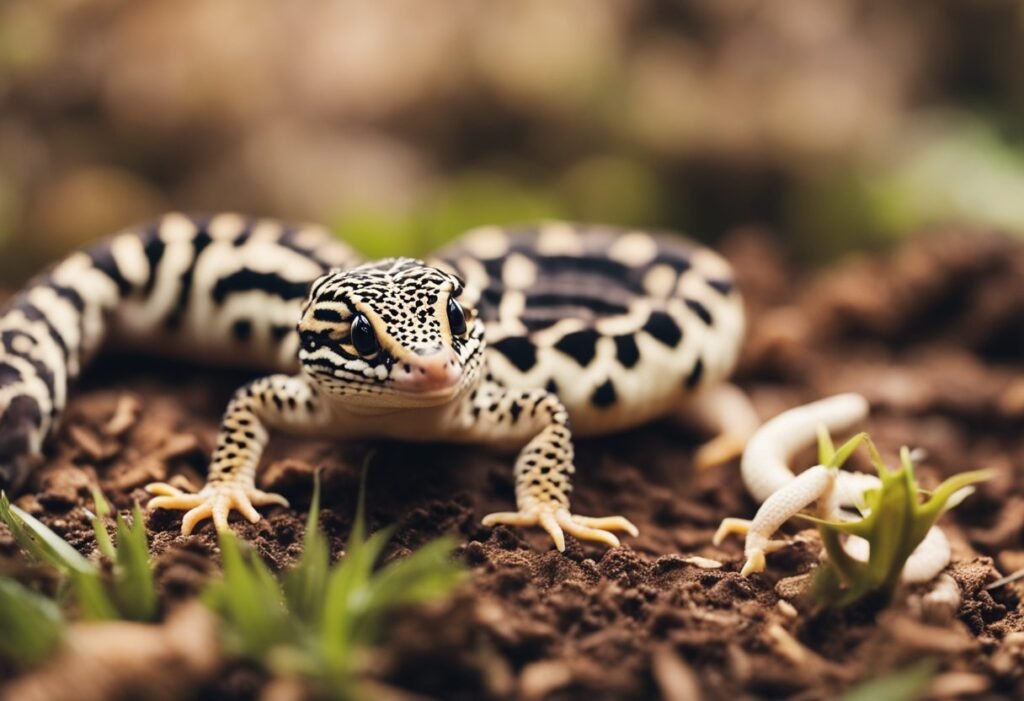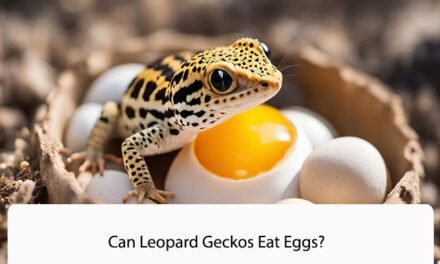Leopard geckos are fascinating creatures that make great pets for reptile enthusiasts. As with any pet, it’s important to provide them with a balanced and nutritious diet. While there are many commercial diets available, some owners prefer to offer their geckos live prey such as earthworms. But can leopard geckos eat earthworms?
The short answer is yes, leopard geckos can eat earthworms. In fact, earthworms can be a nutritious addition to their diet. However, it’s important to ensure that the earthworms are properly prepared and fed to your gecko in moderation. In this article, we’ll explore the nutritional benefits of earthworms for leopard geckos and provide tips on how to safely incorporate them into their diet.
Dietary Habits of Leopard Geckos

Leopard geckos are insectivores and their diet in the wild consists of insects such as crickets, mealworms, waxworms, and superworms. They are known to have a varied diet and can eat a range of insects, which is why they are popular pets.
In captivity, it is important to provide a balanced diet for leopard geckos to ensure their health and well-being. A diet consisting solely of crickets or mealworms can lead to nutritional deficiencies, so it is recommended to offer a variety of insects as well as supplements to ensure they receive all necessary nutrients.
While leopard geckos primarily eat insects, they can also eat other small prey items such as earthworms. Earthworms are a good source of protein and can be offered as an occasional treat. However, it is important to ensure that the earthworms are not too large for the gecko to consume and are free from any harmful chemicals or parasites.
In summary, leopard geckos are insectivores and require a varied diet to ensure their health and well-being. While they primarily eat insects, they can also eat other small prey items such as earthworms as an occasional treat. It is important to provide a balanced diet and supplements to ensure they receive all necessary nutrients.
Nutritional Requirements for Leopard Geckos

As responsible pet owners, it is important to ensure that our leopard geckos are receiving a balanced and nutritious diet. A well-balanced diet is essential for their overall health and well-being.
Leopard geckos are insectivores, which means they primarily feed on insects. In the wild, their diet consists mainly of crickets, mealworms, and other insects. In captivity, it is important to provide a variety of insects to ensure that they are receiving all the necessary nutrients.
Leopard geckos require a diet high in protein and low in fat. They also require calcium and vitamin D3 for healthy bones and proper growth. It is important to provide a calcium supplement to their diet, as well as a source of UVB lighting to aid in the absorption of calcium.
In addition to insects, leopard geckos can also eat some fruits and vegetables in moderation. However, it is important to note that they are not able to digest plant matter as efficiently as insects.
When feeding leopard geckos, it is important to provide appropriately sized prey. Prey that is too large can cause digestive issues and even lead to impaction. It is also important to ensure that the insects are gut-loaded, which means they are fed a nutritious diet before being fed to the gecko.
In conclusion, providing a well-balanced diet is essential for the health and well-being of leopard geckos. A diet high in protein, low in fat, and supplemented with calcium and vitamin D3 is necessary for healthy bones and proper growth. Providing a variety of appropriately sized and gut-loaded insects, as well as a source of UVB lighting, will ensure that our leopard geckos are receiving all the necessary nutrients.
Safety Considerations for Feeding Earthworms

When considering feeding earthworms to leopard geckos, it is important to take certain safety considerations into account. While earthworms can be a nutritious addition to a leopard gecko’s diet, there are some potential risks to be aware of.
Firstly, it is important to ensure that the earthworms being fed to the leopard gecko are not contaminated with any harmful substances, such as pesticides or fertilizers. This can be achieved by either purchasing earthworms from a reputable supplier or by breeding them yourself using organic soil and food.
Secondly, it is important to ensure that the earthworms are an appropriate size for the leopard gecko. Earthworms that are too large can cause choking or digestive issues, while those that are too small may not provide enough nutrition. As a general rule, earthworms should be no larger than the width of the leopard gecko’s head.
Finally, it is important to monitor the leopard gecko’s behavior and health after introducing earthworms to their diet. Some individuals may have allergies or sensitivities to earthworms, which can cause adverse reactions. Additionally, overfeeding earthworms can lead to obesity and other health issues.
In summary, while feeding earthworms to leopard geckos can be a safe and nutritious option, it is important to take certain safety considerations into account to ensure the health and wellbeing of your pet.
Preparing Earthworms for Leopard Geckos
When it comes to feeding leopard geckos, earthworms can be a nutritious and tasty option. However, it is important to properly prepare them to ensure they are safe and healthy for your gecko to eat.
First, it is recommended to purchase earthworms from a reputable source or to collect them from a pesticide-free area. Once you have obtained the earthworms, it is important to rinse them thoroughly in warm water to remove any dirt or debris.
Next, you can choose to gut-load the earthworms by feeding them nutrient-rich foods such as fruits and vegetables. This will increase the nutritional value of the earthworms for your gecko.
Before feeding the earthworms to your gecko, it is important to ensure they are an appropriate size. Earthworms that are too large can be difficult for your gecko to swallow and may cause choking or digestive issues. As a general rule, the earthworm should be no wider than the width of your gecko’s head.
Finally, you can offer the prepared earthworms to your gecko using feeding tongs or placing them in a shallow dish. It is important to only offer as much as your gecko can eat in one sitting to prevent overfeeding.
Overall, with proper preparation and feeding, earthworms can be a healthy and enjoyable addition to your leopard gecko’s diet.
Alternative Food Sources for Leopard Geckos

As pet owners, we always want to ensure that our leopard geckos are getting the right nutrition. While they primarily feed on insects, there are alternative food sources that can provide the necessary nutrients for their growth and development.
One alternative food source for leopard geckos is earthworms. These are a great source of protein and calcium, which are essential for their overall health. However, it is important to note that not all leopard geckos may be willing to eat earthworms.
Another option is mealworms, which are a common staple in a leopard gecko’s diet. These are a good source of protein and fat, but they are low in calcium. To ensure that your leopard gecko is getting enough calcium, you can dust the mealworms with calcium powder before feeding.
Dubia roaches are also a great alternative food source for leopard geckos. These are high in protein and calcium, and they are also low in fat. However, they can be more expensive compared to other food sources.
It is important to note that while alternative food sources can provide the necessary nutrients for leopard geckos, it is still important to vary their diet to ensure they are getting a balanced nutrition. As always, it is recommended to consult with a veterinarian or a reptile expert for any dietary concerns.
Frequently Asked Questions
What is a safe diet for leopard geckos?
Leopard geckos are insectivores, and their diet should mainly consist of live insects. Some of the safe and nutritious insects that leopard geckos can eat include crickets, mealworms, superworms, and dubia roaches.
Are rolly pollies a suitable food for leopard geckos?
No, rolly pollies, also known as pill bugs or sow bugs, are not a suitable food for leopard geckos. They do not provide adequate nutrition and can cause digestive issues.
Is it okay to feed mealworms to leopard geckos?
Yes, mealworms are a suitable food for leopard geckos, but they should not be the only food source. They are high in fat and low in calcium, so they should be fed in moderation.
What types of worms can leopard geckos consume without harm?
Leopard geckos can safely consume waxworms, phoenix worms, and silk worms in moderation. These worms are high in fat and should not be fed as a staple diet.
Are earthworms a healthy choice for other reptile species?
Yes, earthworms are a healthy choice for other reptile species, but they may not be suitable for leopard geckos. Earthworms are high in moisture and can cause digestive issues if fed in excess.
How much should a leopard gecko be fed in terms of worm quantity?
Leopard geckos should be fed an appropriate amount of worms based on their size. As a general rule, a leopard gecko should be fed 2-3 appropriately sized insects per feeding, 2-3 times per week. Overfeeding can lead to obesity and other health issues.





